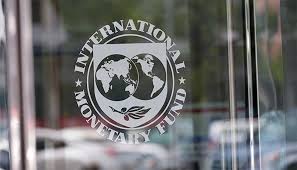The International Monetary Fund has brought to an end the argument that Ghana’s economy was experiencing challenges prior to Covid-19, saying, the country entered the Covid-19 pandemic with a favorable economic outlook.
It said in a detailed Article IV Consultation Document that "before the pandemic hit, the economy had been expected to grow at 5.8% in 2020."
The authorities had maintained macroeconomic stability following the successful completion of the Extended Credit Facility programme in 2019.
The Fund emphasised that “an extensive banking sector cleanup, together with an improved supervisory and regulatory framework, had laid the foundations for financial stability”.
It further said that the government’s response to the Covid-19 pandemic helped save lives and safeguard livelihoods.
“To contain the spread of Covid-19, the government implemented social distancing restrictions, including a partial lockdown in April 2020 and school and border closures. Growth slowed, food prices spiked, and exports were affected by a large decline in oil prices. However, a major monetary and fiscal policy relaxation cushioned the pandemic impact on economic activity”, it noted.
Economic recovery underway but fiscal rigidities and debt vulnerabilities increase
The Bretton Wood institution also said an economic recovery is underway, but fiscal rigidities and debt vulnerabilities have increased, saying, the rebound in activity coincided with the gradual easing of social distancing restrictions and the launch of an ambitious vaccination campaign.
“Government policies contributed to a record 2020 fiscal deficit, a sharp increase in public sector debt, and rising debt service costs. The 2021 budget undertook a difficult but important shift towards medium-term fiscal consolidation. The economic impact of the pandemic is fueling social demands on the government to reverse the decline in living standards and address youth unemployment.”, it explained.
Economic growth slowed to 0.4% in 2021 increasing poverty
Growth slowed from 6.5% in 2019 to 0.4% in 2020, due to lower mining production and the impact of Covid-19 restrictions, equivalent to an income per capita decline of 1.7%.
The Fund to this end said poverty increased, and half of all households reduced food spending during the partial lockdown.
However, the economy avoided the contractions seen across the region, it added.
“Growth should rebound to 4.7% in 2021, supported by a strong cocoa season and a recovery in mining and services, although the government fight against illegal mining may affect small-scale gold production while delayed well-drilling will continue to affect oil production this year”.
Latest Stories
-
We’ll cut down imports and boost consumption of local rice and other products – Mahama
2 hours -
Prof Opoku-Agyemang donates to Tamale orphanage to mark her birthday
3 hours -
Don’t call re-painted old schools brand new infrastructure – Prof Opoku-Agyemang tells gov’t
4 hours -
Sunon Asogli plant will be back on stream in a few weeks – ECG
4 hours -
ECOWAS deploys observers for Dec. 7 election
4 hours -
73 officers commissioned into Ghana Armed Forces
4 hours -
Impending shutdown of three power plants won’t happen – ECG MD
4 hours -
Ghana shouldn’t have experienced any ‘dumsor’ after 2017 – IES Boss
5 hours -
Lamens flouted some food safety laws in re-bagging rice – Former FDA Boss Alhaji Hudu Mogtari
5 hours -
Afcon exit: Our issue is administrative failure and mismanagement, not lack of talent – Saddick Adams
6 hours -
WAPCo to commence major pipeline maintenance and inspection from November 25
6 hours -
CEO of Oro Oil Ghana Limited Maxwell Commey listed among the 100 Most Influential People Awards, 2024
6 hours -
Power crisis: Amandi is off due to maintenance, not debt – ECG Boss
6 hours -
Votes cast for late Akua Donkor to be declared invalid – Electoral Commission
6 hours -
You can’t keep “incompetent” Otto Addo for the long term – Countryman Songo
7 hours

